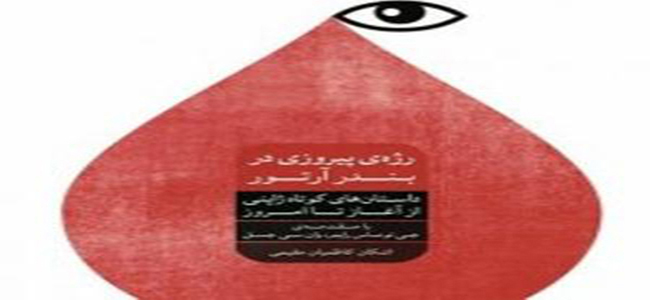
It is the first and only comprehensive book on Japanese literature published in Farsi and enables the readers to get to know various periods of fiction writing in Japan as well as entertaining the audience with charming stories, Mehr News Agency reported.
‘Triumphant March into Port Arthur’ is a selection of all fiction writing eras in Japan from the ancient (710-794 AD), classic (794-1185 AD), middle (1185-1603), pre-modern (1603-1868 AD), modern (1868-1945), and post-modern eras.
It takes the reader on a journey of fiction writing in Japan, short stories in particular, as each story signifies a special period in history.
In all, 24 stories by 20 authors are included. Haruki Murakami, Kobo Abe, Yoko Ogawa, and other renowned names are among the authors of the collection.
‘No Saints or Angels’ by Ivan Klima was translated into Farsi by Heshmat Kamrani and published by Nashre-No Publications.
Klima was introduced to the Iranian public with three other books; ‘The Spirit of Prague’, ‘Waiting for the Dark, Waiting for the Light’, and ‘My Golden Trades’ were previously translated by Khashayar Deyhimi and Forough Pouryavari.
As to other works by Klima, ‘No Saints or Angels’ is set during the era of Soviet colonialism. The book in particular depicts East European life of a female dentist whose husband has left her struggling with cancer and an addict daughter in Czechoslovakia before and through the collapse of the Soviet Union.
Klima is a Czech writer, playwright, journalist, and one-term professor at the University of Michigan. Most of his works were prohibited after the Prague Spring. He was arrested for his criticisms of the communist regime in his country a year prior to the political liberalization, and his works were published out of Czechoslovakia till 1989. Ivan Klima was awarded the Franz Kafka Prize for literature in 2002 as a second recipient.
“Klima is very well-known writer in Europe and highly praised by the Czech-born writer Milan Kundera,” Kamrani remarked, according to Financial Tribune.
‘The Fables of Leonardo da Vinci’ comprising tales and legends written by Leonardo da Vinci is translated by Leyli Golestan and printed by Sales Publications.
As it says on the back cover of the book, da Vinci was a highly controversial and discussed character. People did not like him as a painter as he never saw his works through. They also believed he sabotaged his career as a sculptor when he left his work of an equestrian statue (a sculpture of a leader riding a horse) incomplete. He was considered an extremist in architecture and was believed “to be a complete fool.” Nonetheless, everyone agreed that Leonardo was a brilliant storyteller who mesmerized his audience with his way with words and authentic works of literature.
chnpress.ir

Add new comment